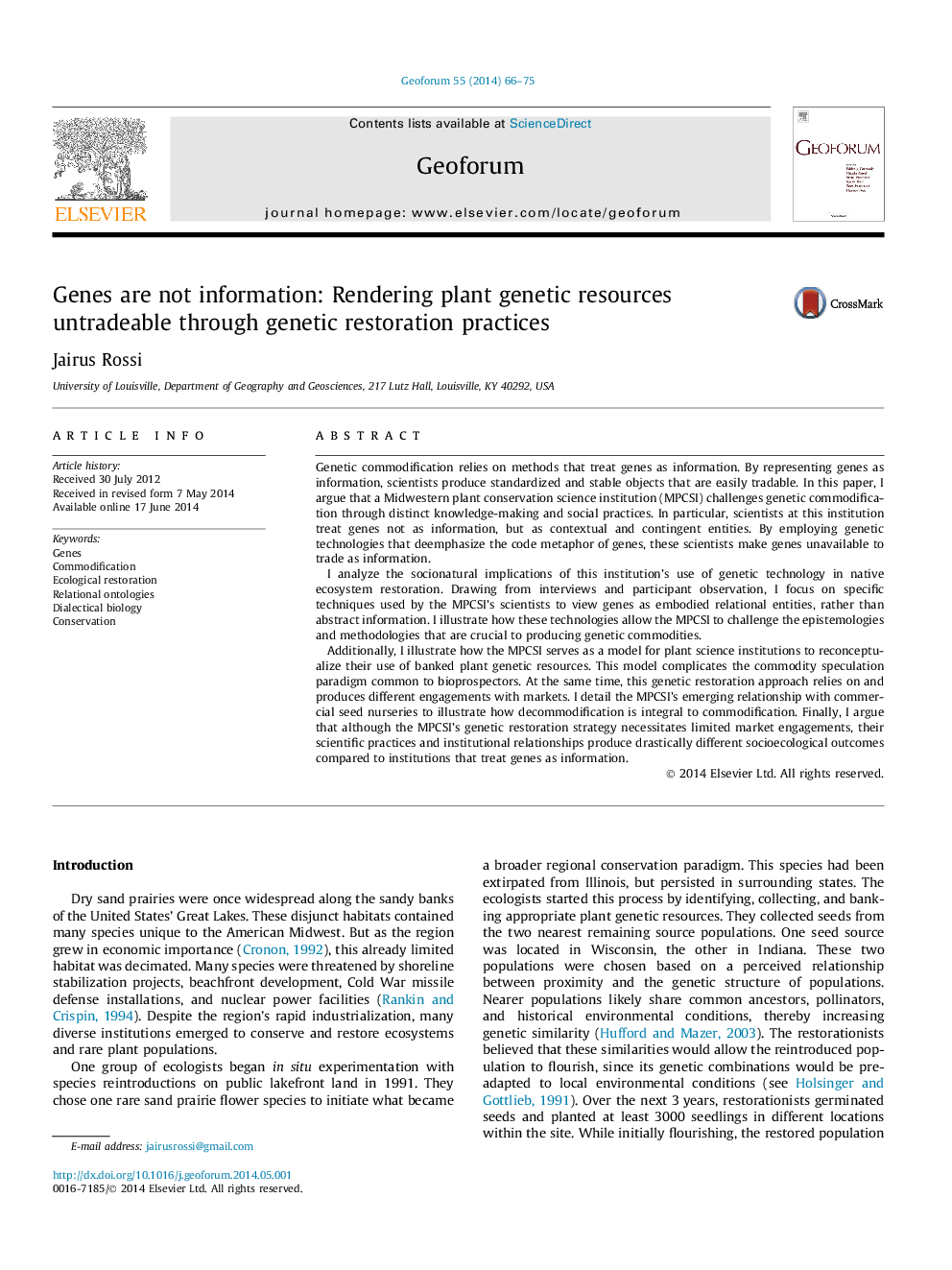| Article ID | Journal | Published Year | Pages | File Type |
|---|---|---|---|---|
| 5073877 | Geoforum | 2014 | 10 Pages |
â¢Gene trading and ownership relies on scientists treating genes as information.â¢Restoration geneticists make genes untradeable by producing contextualized genetic data.â¢These data are contextualized in ways that facilitate ecological restoration projects.â¢This restoration paradigm redefines the value and utility of banked genetic resources.â¢In the process, restorationists reengage with and produce novel commodity forms.
Genetic commodification relies on methods that treat genes as information. By representing genes as information, scientists produce standardized and stable objects that are easily tradable. In this paper, I argue that a Midwestern plant conservation science institution (MPCSI) challenges genetic commodification through distinct knowledge-making and social practices. In particular, scientists at this institution treat genes not as information, but as contextual and contingent entities. By employing genetic technologies that deemphasize the code metaphor of genes, these scientists make genes unavailable to trade as information.I analyze the socionatural implications of this institution's use of genetic technology in native ecosystem restoration. Drawing from interviews and participant observation, I focus on specific techniques used by the MPCSI's scientists to view genes as embodied relational entities, rather than abstract information. I illustrate how these technologies allow the MPCSI to challenge the epistemologies and methodologies that are crucial to producing genetic commodities.Additionally, I illustrate how the MPCSI serves as a model for plant science institutions to reconceptualize their use of banked plant genetic resources. This model complicates the commodity speculation paradigm common to bioprospectors. At the same time, this genetic restoration approach relies on and produces different engagements with markets. I detail the MPCSI's emerging relationship with commercial seed nurseries to illustrate how decommodification is integral to commodification. Finally, I argue that although the MPCSI's genetic restoration strategy necessitates limited market engagements, their scientific practices and institutional relationships produce drastically different socioecological outcomes compared to institutions that treat genes as information.
